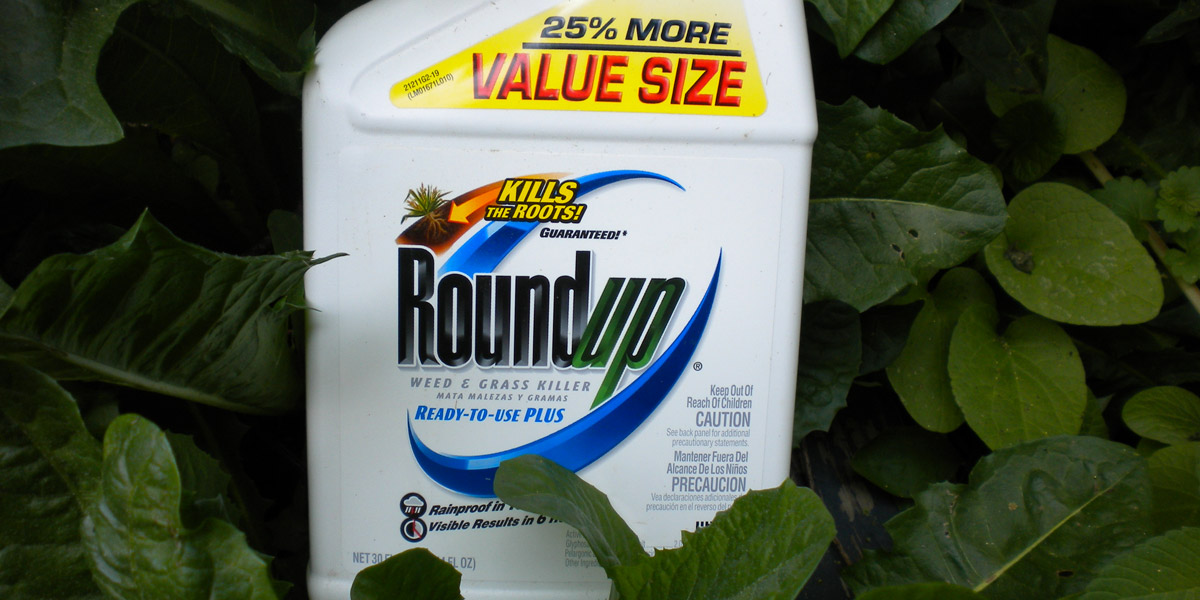
Juror in Dewayne Johnson vs Monsanto case counters criticisms that jury's verdict against the company regarding Roundup's cancer-causing ability was not science-based
Last year twelve jurors unanimously awarded $289m in damages against the Bayer unit Monsanto to cancer sufferer Dewayne Johnson after they decided that the company's Roundup herbicide substantially contributed to his cancer.
Defenders of Monsanto and its glyphosate herbicide Roundup have argued that juries aren’t up to judging science issues and are just guided by emotion.
But in an interview with the German business newspaper Handelsblatt (translation by Google/GMWatch), one of the jurors, Robert Howard, explained that the jury was not incompetent and certainly was not a gathering of fools.
Calling his service on the jury a "life-changing experience", Howard described the background of the jurors: "There were a lot of intelligent people, several with doctoral degrees, a molecular biologist, a public accountant, an environmental engineer, a technology journalist, and someone doing research on a law firm. I own a construction company in San Francisco and I'm an artist. At university I studied environmental analysis."
Asked whether the trial was an emotional experience, Howard said the testimony of Johnson and his wife was "very moving": "You see them and think, 'This is a family that is going through hell.' The health problems are compounded by legal difficulties. That was the only really emotional moment. Monsanto has accused Johnson's lawyers of stirring up emotions in the courtroom. But that was not the case. Our verdict was very rational."
He described the jury's method of working: "We proceeded very methodically, reviewing the process, comparing one statement with another in our records, and considering what they meant... We had 17 questions that we had to answer. When the question of guilt was clarified, we set the economic and non-economic damages. Then it was about the fines, which was the hardest."
The jury was unanimous on all decisions, except for the precise amount of the fines. But even there, the differences were not fundamental.
The jury awarded Johnson $39.25 million in pure damages and $250 million in extra penalties. Asked how they came up with the sum of the so-called "punitive damages", Howard said: "On the one hand there was the sum of 330 million dollars that the prosecution demanded. The lawyer explained that this was the interest on Monsanto's cash during Johnson's four-year illness. That sounds good. But it is meaningless. We also discussed punishing Johnson's existential disease with a life-threatening sum for Monsanto. But that would have been enormously high - too high. So we took to heart the principle that these 'punitive damages' should also have a deterrent character, so that companies do not do this again in the future. That too was not easy to fix."
Howard is adamant that contrary to what is claimed by corporate lawyers, juries can understand complex issues: "The jury can do that. Our jury has been described by many as highly intelligent. We even suggested questions to the court - many of them came from our molecular biologist. For me, the process was a kind of crash course in toxicology and cancer studies. Today I can look at a study and understand what is statistically relevant and what is not. For each study, we heard from the plaintiffs and Monsanto."
Regarding just how dangerous Roundup is, Howard said, "Glyphosate is not plutonium. It's clear that there are only a handful of people in a group of people who develop cancer - not everyone does. The Monsanto lawyers could indeed cast doubts. But a pattern was clearly visible."
In response to Bayer's assertion that no scientific studies show Roundup is carcinogenic, Howard said, "I have seen many scientific studies that included statistically relevant data showing that the glyphosate-based herbicide Roundup increases the risk of non-Hodgkin's lymphoma in humans. But it was not up to the jury to find the evidence. We had to see whether or not there was enough evidence that the herbicide was carcinogenic. And in my opinion, there were more than enough. The evidence of Monsanto's corporate misconduct was clear and convincing."










